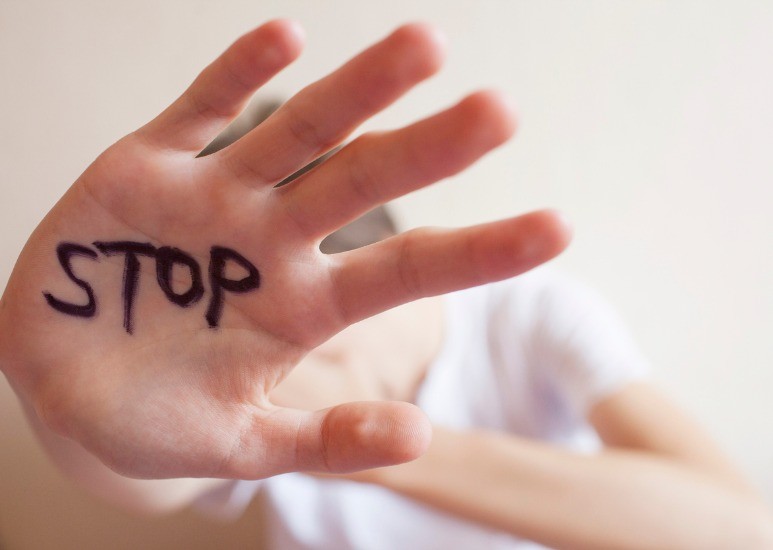Exploitation happens even here in Central Indiana. As a network of caregivers, it’s our charge to educate the public to know the signs and understand how to help the victims of exploitation like human trafficking.
Human trafficking is when someone harbors or transports another person by exerting control over them, often through threats, abduction, force or abuse of power. Most commonly, the goal of human trafficking is sexual exploitation, but it may also take the form of forced labor or other forms of servitude.
Here are tips on how to identify potential cases of trafficking, and how to support victims. Together we can make our community a safer place to live.
How To Spot the Signs of Human Trafficking
There are several telltale signs that a person may be a victim of human trafficking. You may want to reach out for help if the person:
- Is under 18 and in prostitution — Human trafficking often takes the form of prostitution, and traffickers often prey on children. If you know of anyone under the age of 18 who’s involved in sex work, they may be a victim of human trafficking.
- Lives with their “employer” — Domestic servitude is another facet of human trafficking. Often, traffickers will force their victims to live with them to exert total control over their life. They may withhold documents from their victim, like the victim’s passport of other forms of ID.
- Isn’t able to speak to others alone — Often, the trafficker exerts control over the victim’s social life. They may not allow the victim to speak to others unsupervised, for fear they’ll reveal the truth. If the victim is able to speak to others, it may seem like their answers are scripted or rehearsed.
- Is unpaid or is paid very little — Financial control is an aspect of human trafficking as well. Victims often feel dependent upon their trafficker because they are either unpaid or are paid poorly. Traffickers may also make their victims feel as though they’re in debt to the trafficker.
- Lives in poor conditions — Another sign that someone may be a victim of human trafficking is that they live in substandard housing. They may live with multiple people in a very cramped space, where substance abuse may be present.
- Shows signs of physical abuse — Victims of human trafficking often bear bruises and other signs of battery, and are prevented from seeking medical attention. They may be incredibly anxious, submissive or fearful, oftentimes because they fear for their own safety or the safety of their loved ones.
How to Report Human Trafficking
If you suspect that someone you know is the victim of human trafficking, help is available.
If someone is in immediate danger, please call 911.
Otherwise, you can call the National Human Trafficking Hotline at 1-888-373-7888, available 24/7. You can also submit a tip online.
How To Get Help if You're a Victim of Human Trafficking
If you are or have been the victim of human trafficking, you’re not alone. Here are resources to get you the help you deserve.
If you are in immediate danger, please call 911.
Call the National Human Trafficking Hotline at 1-888-373-7888. You can speak to someone in more than 200 different languages, and they’re available 24 hours a day.
If you aren’t able to call, you can text HELP or INFO to BeFree (233733).
If you'd rather speak with a Community provider and access our resources, please find more information about the Center of Hope or call 317-355-4673. Our forensic nurses are available 24/7. Forensic nurses can help get answers about what you’ve been through, and they offer financial assistance so their services are never out of reach.
It takes a vigilant community to combat human trafficking. See what Community is doing to advocate for justice across Central Indiana.
